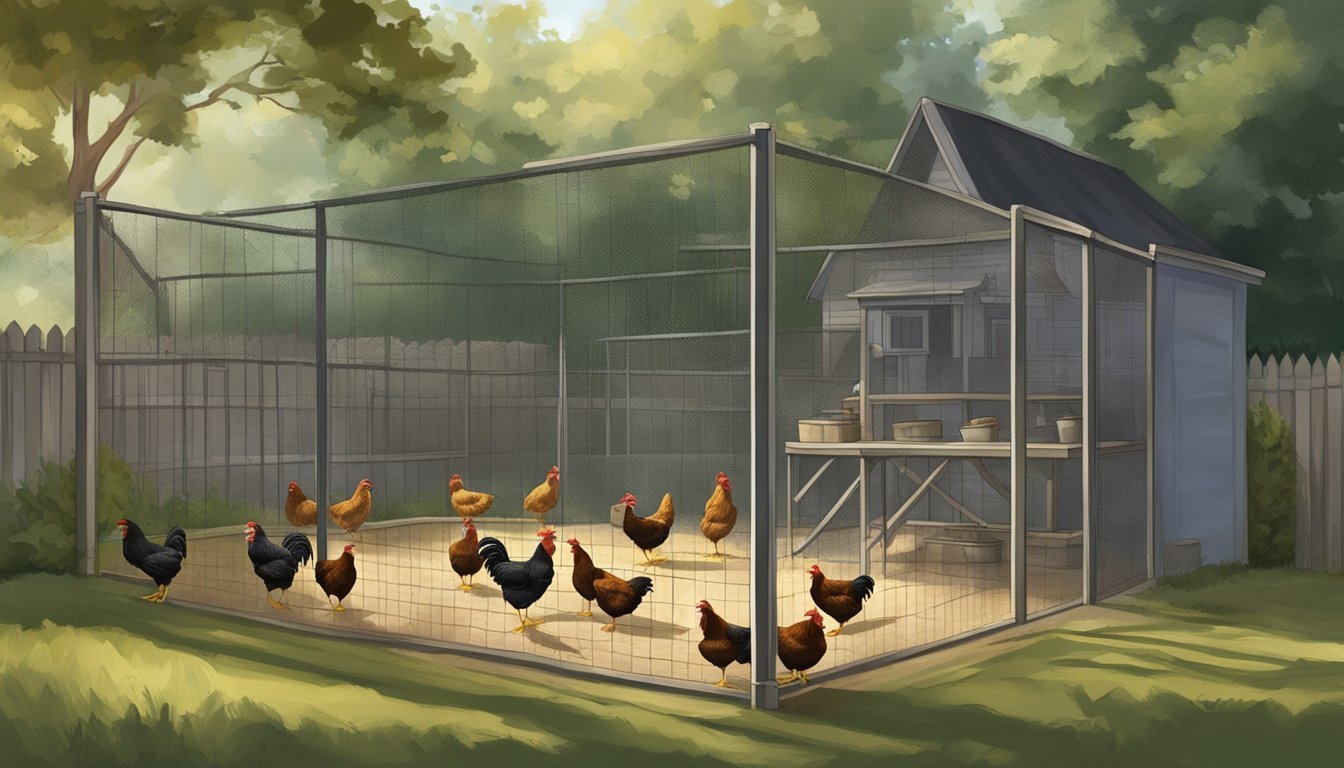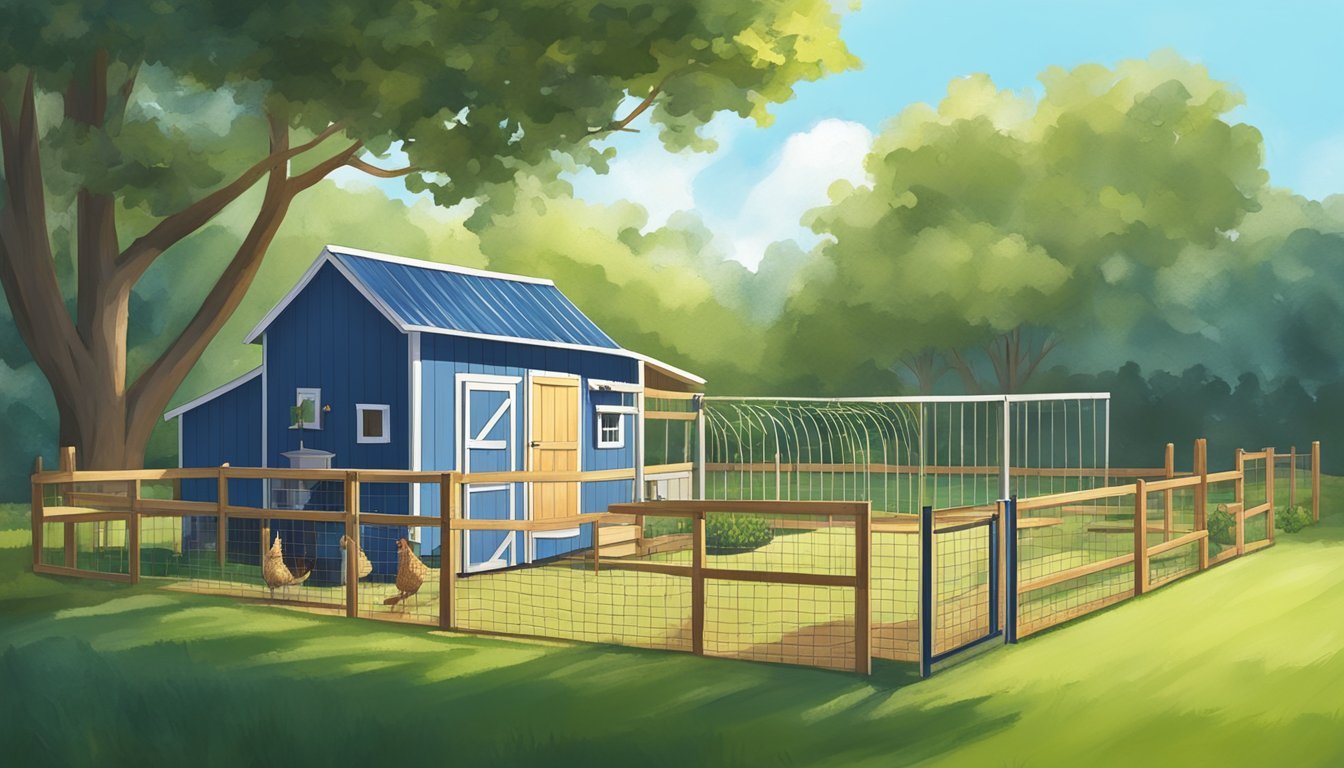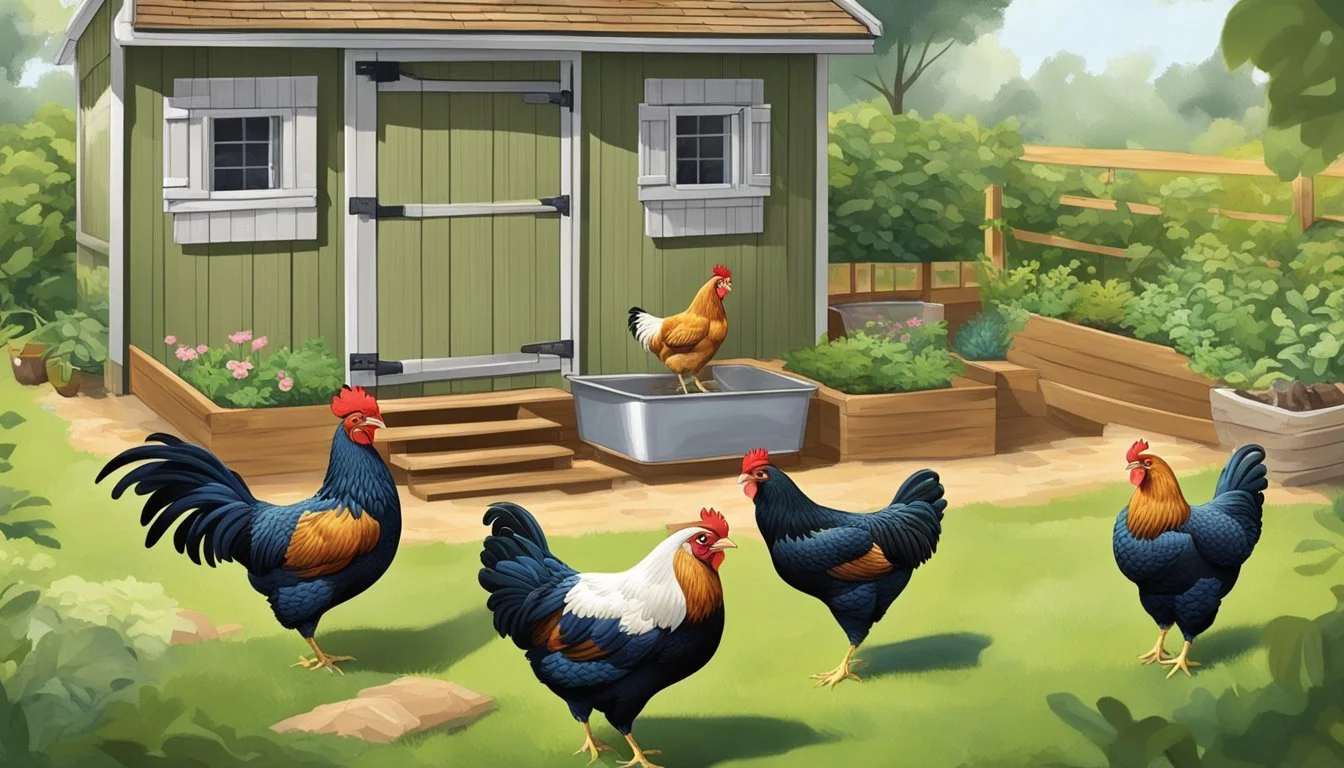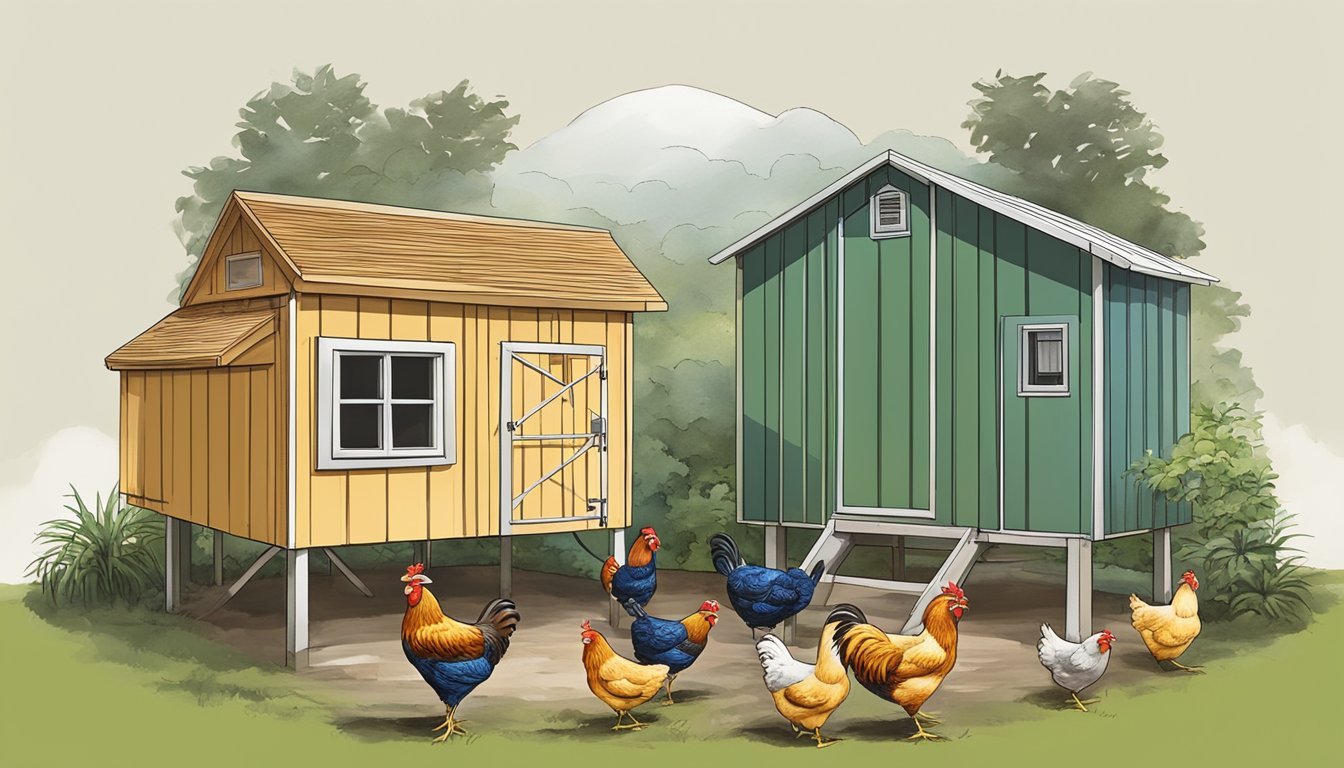Keeping Backyard Chickens in Gainesville, FL
Essential Tips for Urban Poultry Farming
Backyard chicken keeping has become increasingly popular among residents of Gainesville, Florida, reflecting a wider trend in urban agriculture. In this northern central Florida city, raising chickens is permissible within certain residential districts under specific guidelines. These regulations are in place to ensure the health and safety of both the chickens and the community.
Gainesville's ordinances allow residents to keep a limited number of hens for personal use, fostering a sustainable lifestyle and the production of fresh, local eggs. However, roosters are not permitted due to noise concerns. These rules align with the philosophy of responsible urban farming, balancing the desire for self-sufficiency with respect for neighbors' peace and tranquility.
The city also supports youth involvement in poultry raising through programs like 4-H and FFA, providing educational opportunities for young people. This engagement promotes animal husbandry skills and a deeper understanding of food sources. Enthusiastic Gainesville communities come together to share experiences and advice, strengthening the local culture around backyard chickens.
Understanding Local Laws
Before acquiring backyard chickens in Gainesville, FL, prospective poultry owners should familiarize themselves with local zoning requirements, obtain necessary permits, and adhere to regulations that govern the number of animals and their upkeep.
Zoning and Permits
In Gainesville, FL, individuals interested in keeping backyard chickens must be aware of the zoning districts that allow for the raising of fowl. Chicken keeping is generally permitted within the RSF-1 through 4, RC, U1, and U2 districts as an accessory use. Permits required for keeping chickens can vary based on location within the city limits, and residents must ensure compliance with all municipal permitting requirements.
Limitations and Restrictions
The city places strict limitations on the number of chickens allowed:
A limit of 10 hens per single-family residence.
No roosters are allowed, as their crowing is considered a nuisance prohibited under city ordinances.
Chickens must be kept for personal use, with the exception of youth projects like 4-H.
Furthermore, it is important to know that Gainesville regulations proscribe certain prohibited activities to avoid nuisances and maintain public health standards.
Gainesville Specific Ordinances
Gainesville maintains specific ordinances tailored to the local community's needs. These ordinances clearly outline:
Permitted and prohibited activities within city limits.
Chicken ordinance details, including where and how fowl can be kept.
Regulations ensuring chickens are not a nuisance to neighbors and do not cause sanitary issues.
It's crucial for residents to thoroughly review the city's chicken ordinance to ensure they remain compliant and avoid potential penalties.
Setting Up Your Chicken Coop
A well-constructed chicken coop ensures the safety and well-being of chickens. The process involves careful consideration of location, design, and cleanliness.
Choosing the Right Location
When selecting a spot for a chicken coop in Gainesville, one must look for an area with good drainage to avoid flooding. The location should provide partial shade to protect chickens from the Florida heat, yet have enough sunlight to deter pests. Accessibility for cleaning and egg collection is also critical.
Design and Security Considerations
The design of a coop must address the protection against predators and weather elements. Use robust materials and incorporate secure latches that raccoons and other animals can’t open. Ensure the coop has ample space for nesting boxes and perches to accommodate the number of chickens. Include a run for chickens to exercise safely.
Coop Necessities Importance Sturdy Frame Resists weather and predators Locked Doors/Windows Prevents unwanted entry Ventilation Reduces humidity and airborne pathogens Insulation Stabilizes temperature
Maintaining Cleanliness and Preventing Disease
Cleanliness is paramount in preventing disease. The coop should be designed for easy cleaning, with surfaces that can be sanitized regularly. Incorporating a schedule for routine cleanup prevents the build-up of droppings and reduces the risk of disease. Biosecurity measures, such as foot dips and quarantine areas for new birds, are also vital to prevent the spread of pathogens.
Selecting Your Chickens
When embarking on raising backyard chickens in Gainesville, FL, selecting the right breed and understanding the individual roles of chickens are fundamental to a thriving flock.
Understanding Breeds and Egg Production
Different chicken breeds have varying capabilities for egg production, hardiness, and suitability to the hot and humid Florida climate. Heritage breeds, which are traditional breeds that have been around before industrial agriculture, often adapt well to local environmental conditions and can be a good choice for consistent egg laying without as much stress from the heat.
Popular breeds for Florida include:
Rhode Island Red: Known for their hardiness and egg-laying consistency.
Plymouth Rock: Offers a good balance between egg production and heat tolerance.
Leghorn: Highly efficient in egg production, although less heat-tolerant than some breeds.
The Roles of Hens and Roosters
Understanding the roles of hens and roosters in backyard poultry is crucial. Hens are female chickens that lay eggs, and keeping a rooster is not necessary for egg production. However, roosters—male chickens—can play a role in flock protection and breeding. They are known for crowing, which can be a consideration for noise regulations.
Key points to remember:
Hens can lay eggs without a rooster present.
Roosters help fertilize eggs if breeding is desired and provide flock security. However, they are not permitted in some urban settings due to noise concerns.
Daily Care and Management
Proper care and management are essential for keeping backyard chickens healthy and productive. Providing balanced nutrition, conducting health check-ups, and understanding chicken behavior are paramount to maintaining a thriving flock in Gainesville, FL.
Feeding and Nutrition
Chickens require a balanced diet to lay quality eggs and maintain good health. It's critical to provide:
Starter Feed: For chicks, a high-protein starter feed is crucial for their early growth.
Layer Feed: Adult hens benefit from layer feed, rich in calcium, to strengthen eggshells.
Grit: Helps in digestion, as chickens do not have teeth.
Treats: Vegetables, fruits, and grains can supplement their diet but should not exceed 10% of total intake.
Clean Water: Access to fresh, clean water is non-negotiable for hydration and metabolic processes.
Chickens also contribute to composting efforts, as their waste can be used to enrich soil.
Health Monitoring and Veterinary Care
Regular health checks ensure the early detection of potential issues. Keepers should:
Look for Signs: Lethargy, abnormal droppings, and changes in egg production can indicate health problems.
Parasite Control: Regularly treat for mites, lice, and internal worms.
Vaccinations: Follow local guidelines for necessary vaccinations against common poultry diseases.
Veterinary Assistance: Consult with a vet who is experienced with poultry for any health concerns.
Handling and Behavior
Understanding chicken behavior is key to managing a backyard flock:
Social Structure: Recognize the pecking order to mitigate bullying and stress within the flock.
Handling: Gentle and regular handling can help keep chickens accustomed to human interaction.
Space: Provide ample space for foraging and exercise to prevent behavioral issues.
Safe Housing: Ensure coops are secure against predators and provide refuge during extreme weather.
A balanced approach to feeding, routine health check-ups, and respectful handling will lead to a successful backyard chicken experience. Fresh eggs, nutrient-rich compost for gardens, and waste management are among the many benefits that come with daily dedication to these care practices.
Legal Considerations for Chicken Raisers
In Gainesville, Florida, chicken raisers need to adhere to specific local ordinances designed to balance the benefits of backyard poultry with community standards.
Slaughtering and Sales Regulations
Under Gainesville's local ordinances, individuals are generally prohibited from slaughtering chickens on residential premises for commercial purposes. Slaughtering is allowed only if it is done so in a humane manner and out of public view, primarily for personal use. The sales of chickens or chicken byproducts like eggs are often restricted in residential zones, and individuals looking to sell such products must ensure compliance with local zoning regulations and have the proper licensing if required.
Relevant Entities:
Laws: Local ordinances dictate slaughtering and sales restrictions.
Slaughtering: Permitted mainly for personal use and must be humane.
On-Premise Sales: Typically restricted and may require proper licensing.
Handling Complaints and Public Concerns
The keeping of backyard chickens must not create a public nuisance. As per local regulations, practices such as noise control (especially from prohibited roosters), odor management, and the maintenance of enclosures are important to prevent any nuisances. If a complaint is filed, chicken owners are required to address the concern promptly to avoid penalties.
Relevant Entities:
Public Nuisance: Regulated by local health and noise control laws.
Byproducts: Must be managed to avoid creating a nuisance.
Chicken owners in Gainesville must keep their activities within the bounds of these guidelines to ensure a harmonious coexistence with their surrounding community.
Community and Educational Resources
Gainesville, Florida offers a supportive environment for individuals interested in raising backyard chickens. Residents have access to a wealth of community resources and educational opportunities that foster learning and collaboration.
Local Chicken Raising Communities
Gainesville's chicken enthusiasts can connect through various local groups. On platforms like Facebook, groups such as Backyard Chickens of Gainesville Florida serve as a hub for exchanging information, sharing experiences, and enhancing the community aspect of chicken raising. They cater to residents spanning from Gainesville to Tallahassee and are a useful resource for both the seasoned chicken keeper and the novice.
Backyard Chickens between Gainesville and Tallahassee Florida is another active community that encourages mutual sharing of chicken-raising knowledge and experiences. Joining such groups helps members stay informed about local ordinances and best practices, fostering a network of support.
Educational Opportunities and Workshops
Gainesville offers a range of educational opportunities for its residents:
University of Florida: Leveraging its Cooperative Extension Service, the University provides resources and workshops for poultry owners on topics ranging from hen health to coop construction.
Local Feed Store: Feed stores often serve as informal hubs of knowledge, giving advice on the best feeds and supplies for backyard chickens. They sometimes host workshops and information sessions, and are ideal for connecting with other local chicken keepers.
4-H Programs: Youth interested in raising chickens can benefit from participating in 4-H projects. These programs promote hands-on learning and leadership skills, often culminating in events such as fairs where participants can showcase their poultry and gain recognition for their efforts.
Residents seeking a more structured educational setting can also find workshops and classes offered by various local organizations dedicated to sustainable agriculture and self-sufficiency. They cover a wide range of topics, from the basics of getting started with chickens to more advanced poultry care techniques.








